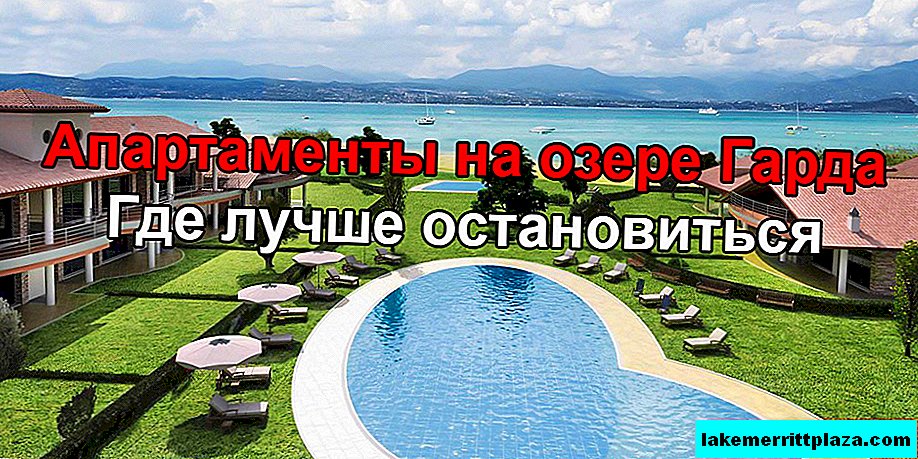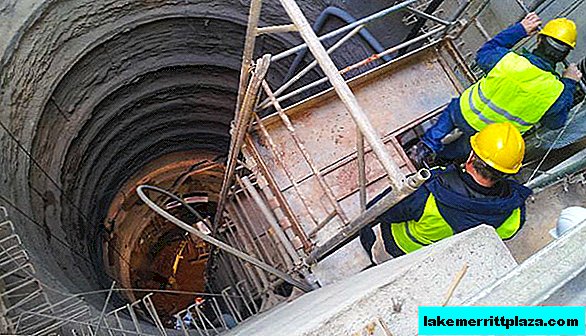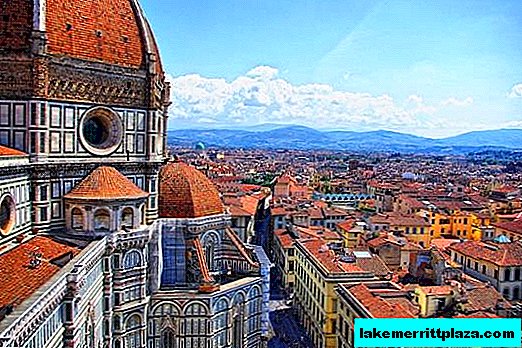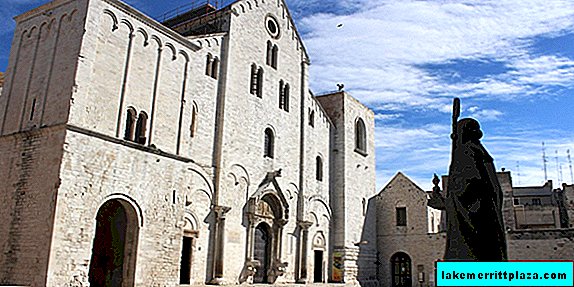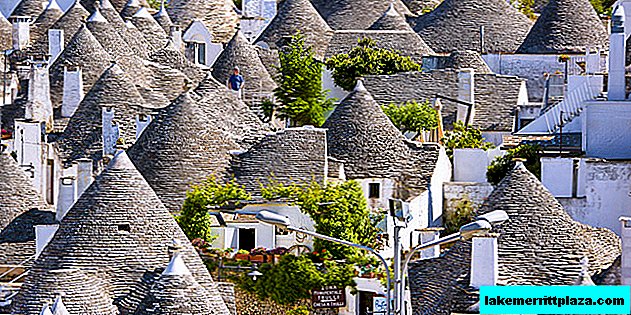The island of Capri is a cozy corner that offers a relaxing holiday and delays any problems. Representatives of the world of art and literature especially loved him. The list of famous people who had a rest and lived at different times on Capri looks impressive.

Capri, photo by Ruud-Onos
About the island
The island of Capri (Isola di Capri) in the Tyrrhenian Sea is an amazingly picturesque place, mesmerizing with its beauty. A beautiful island rises among the turquoise waves. It is covered with lush greenery, its shores are fantastically indented by bays, dotted with grottoes. There are numerous palaces and monasteries, castles and towers, the ancient ruins of grandiose imperial villas. The island's guests are fascinated by amazing landscapes, attracted by their unexplored mysterious caves.
Capri has been a famous holiday destination since ancient Rome. Its first resident and owner is considered to be Emperor Augustus. "Paradise of idleness," as the Roman ruler called Capri. Emperor Tiberius built several beautiful villas on the island.
Resort

Capri resort, photo by paul-gy
Indeed, a cozy corner of the land offers a relaxing holiday and delays any problems. Capri has become a world-famous resort since the mid-19th century. Representatives of the world of art and literature especially loved him. The list of famous and great people who had a rest and lived at different times on Capri looks impressive. The island's population is only about 13 thousand people, but in the high season, up to half a million tourists come here.
High-service resort is located in two cities, where there are approx. 60 hotels. They vary in price and class, but the staff is equally attentive, friendly and professional. Hotel rooms can satisfy both Hollywood movie stars and representatives of the middle class. The cost of living depends on the season and ranges from € 100-700 per day. Budget special offers are rare here.
Sights
What to see in Capri, where to go? In addition to the wonderful natural scenery, tourists expect historical sights of different eras.
Azure Grotto

Azure Grotto (Grotta Azzurra), photo Pietro
The most popular place on the island is the Cote d'Azur (Grotta Azzurra). This is a cave filled with sea water. The water mirror inside the grotto appears bright blue; stone walls and objects lying at the bottom emit a mystical silver light. Grotta Azzurra once served as a nymphaeum - Tiberius' personal bathhouse. You can get into the grotto through the only low entrance from the sea. Tourists get there in triple boats; when passing through a stone “gate” 1.3 m high, people have to go to the bottom of the vessel. The optical illusion of blue and glow can be observed only on a clear day, in sunlight.
Cliffs of faraglioni

Rocks of Faraglioni, photo pili_stage
The symbol of Capri is the cliffs of Faraglioni. Three stone colossal reefs protrude from the depths of the sea off the coast. The highest - Faraglione di Terra (faraglione di Terra) (111 m); middle - Faraglione di Fuori (faraglione di Fuori) with a natural arch (104 m); the height of Faraglione di Mezzo is 81 m. The best place for exploring natural attractions is the observation deck on Cape Punta Tragara. Tourists like to go by boat under the arch of the middle cape. Divers find magnificent underwater landscapes and unique inhabitants of the sea at these rocks. At the foot of the Faraglioni di Fuori, rare blue lizards live.
Cave of the Great Mother

Cave of the Great Mother (Grotta di Matermania), photo csi333
Grotta di Matermania, the "Great Mother's Cave" is a natural attraction located in Mount Tuoro. This legendary cult place was used to worship the Mother of all gods - the goddess Cybele. Once its walls were decorated with mosaics, drawings, shells, colored stucco. Little remains of the elements of ancient art, but in general the place looks majestic and picturesque.
Villa Malaparte

Villa Malaparte
Built the villa (Villa Malaparte) by Italian writer and journalist Curzio Malaparte in 1938-1949. Strict in style, a two-story red house in splendid isolation stands on Cape Massulo. It is covered with a flat roof leading to a wide staircase. Films "Skin" by Liliana Cavani (1981), starring Marcello Mastroiani, and "Contempt" by Jean-Luc Godard (1963), and Brigitte Bardot were shot at the villa.
Capital - Capri
The capital of the island is the eponymous town of Capri. This is a small commune with picturesque temples and ancient buildings, with many hotels and expensive shops. The administrative center of Capri stands on a hill with a beautiful view of the sea.
Carthusian Monastery of San Giacomo

San Giacomo Monastery (Certosa di San Giacomo), photo by Sean-Munson
In the city there is the Cartesian monastery-fortress of San Giacomo (Certosa di San Giacomo) (XIV century). Today the monastery is open to all. In the monastery, which has retained its medieval appearance, after restoration, there is a museum of the German artist Diefenbach, who lived and worked on Capri for the last 13 years of his life. Open air concerts take place in the courtyard.
Villa Cherio

Archaeological Museum of Ignazio Cherio, photo by Denis-Dubtrix
The Villa Archio created the Archaeological Museum named after researcher Capri - Dr. Ignazio Cherio (Museo Ignazio Cerio). The exposition presents the remains of fossils of ancient animals: dwarf elephant, rhinoceros, hippo of the Pleistocene era; collections of ancient Roman and ancient Greek mosaics, stucco moldings, vases.
Church of Santo Stefano

Church of Santo Stefano (Chiesa di Santo Stefano), photo Armando Mancini
On the square opposite the palace of Cherio is a masterpiece of architecture of the XVII century - the church of Santo Stefano (Chiesa di Santo Stefano). This is a good example of a peculiar style of Capri Baroque, combining the features of Moroccan and Greek architecture.
Jupiter's Villa

Villa Jupis (Villa Jovis), photo Sean-Munson
Tourists visit the ancient villa of Jupiter (Villa Jovis), where the ruins of the residence of Tiberius are preserved. The historic site is located on the top of Monte Tiberio - at the highest point of the island. Here for the first time reservoirs for rainwater were built, which were later supplied to supply towns. From the city of Capri, you can walk there in about an hour.
Salto di Tiberius
On the side of the mountain, on the way to the villa, there is the Salto di Tiberius site. From there, during the time of the harsh emperor, objectionable subjects were dumped.
Anacapri
The second most visited city on the island is Anacapri.
Villa Damekuta

Villa Damecuta, photo by Plaidmoon2
Next to it are the ruins of the Villa Damekuta, abandoned by the ancient inhabitants during the eruption of Mount Vesuvius.
Phoenician stairs

Phoenician Staircase (Scala Fenicia), photo by Denis Dubtrix
In Anacapri, from the port of Marina Grande, you can climb the Phoenician stairs (Scala Fenicia). It connects Capri and Anacapri, a distance of 1.7 km. Its 921 steps were carved into the rock by the first inhabitants of Capri, who settled here in the 7th-6th centuries BC. For tourists who are not afraid of physical exertion, I recommend a walk along the Phoenician stairs.
Temple of Santa Sofia

Church of Santa Sofia (Chiesa di Santa Sofia), photo G.
This city is worth a visit to the Temple of Santa Sofia (Chiesa di Santa Sofia). In the church interior, valuable frescoes, a majolica floor depicting the biblical theme “Expulsion from Paradise”, a marble iconostasis with colored inlay, and polychrome wooden altars are interesting.
Marina Grande Cove

Marina Grande Bay, photo PNINA
The main port of Capri is Marina Grande Bay. Ships from Naples and Sorrento come there. To the west of it are popular tourist sites: San Costanzo Temple (XVII century.), Palace of Emperor Augustus Palazzo a Marestanding in ruins. The port was founded in the XX century - after its opening, the tourism industry of Capri thrives.
Capri beaches
Beach in Marina Piccola Bay

Marina Piccola Bay, photo by Kajo
Marina Piccola Bay - a picturesque place in which the safest, most convenient and inexpensive beaches of Capri are concentrated. Most of the sightseeing tours begin from Marina Piccola. It offers a magnificent view of the limestone reefs of Faraglioni.
There are almost no standard sandy beaches on Capri (the exception is the strip of sand at the second harbor in Marina Piccola Bay). There is an equipped pebble beach near the port of Marina Grande, but it is always crowded with tourists.
Faro Beach
The most attractive beach area of Capri is Lido del Faro. Faro Beach is located in a separate, quiet part of the island - in Punta Carena, near the lighthouse. This is a beautiful rocky terrace located on the shore of a picturesque bay in rocky cliffs. The water here is clear. Boats and boats do not enter the beach area, a swimming pool with clear sea water has been created for children, there is a restaurant.

Beach on the island of Capri, photo Maria
Beach at the cliffs of Faraglioni
There are stone platforms equipped for the beach at the cliffs of Faraglioni - in the bay between the island and the first cliff. It’s calm near this shore, the stone platforms are fully adapted for relaxation and swimming.
Beach area Baths Tiberius
Between Marina Grande and the Cote d'Azur there is a beach area Bagni di Tiberio (Baths of Tiberius). This is a pebble beach, accessed by free boat from Marina Grande pier. Near the Cote d'Azur, the small beach of Gradola is arranged. The swimming place is equipped at the restaurant of the same name - about twenty deck chairs are installed on the stone steps.
Traditional island cuisine

Limoncello photo by MIAMI
The cuisine of Capri is traditionally campaigned and deserves a separate description. The island produces famous Italian cheeses: mozzarella, Silano, Provolone, Cachiocavallo; smoked varieties of Strachchiata and Skamorets, fresh cottage cheese. Capri grows tomatoes - some of the best in Italy. From these tomatoes, a specific sauce with a "marine" flavor is obtained. Fish dishes are the hallmark of many restaurants. Chestnuts are also popular here, as well as dishes and sweets prepared from them. In addition to pizza on the island, you will be offered a unique Italian coffee, meringue-ice cream, cottage cheese from buffalo milk, sausages, artichokes. In the cellars of the restaurants are stored wines of a hundred years aging.
The inhabitants of the island love and know how to cook zucchini: you will be offered many dishes from this vegetable. Lemons growing on Capri have become truly legendary - huge, beautiful, delicious fruits are present in almost all recipes and serve as decoration of the serving. From these fruits are made Limoncello - a liquor that is used independently and is added to salads, desserts, ice cream.
Climate
The climate of Capri is one of the factors that attract tourists. The weather here is wonderful: in the summer it is moderately hot due to the breeze, bringing wet coolness from the sea (the temperature rarely reaches 30 ° C), there is little rainfall; winter is quite warm. Connoisseurs advise to go to Capri in early autumn and spring - solar activity at this time is low, and there are few tourists.

Capri Island, photo by Luigi Strano
How to get there
Getting to Capri is easy. The island can be reached by boat from the Naples port of Molo Beverello - the journey will take about 40 minutes.
From Sorrento the boat delivers tourists in 20 minutes.
A speed boat runs from Forio d'Ischia to the island (journey time 40 minutes).

Capri Cable Car
From the port of Marina Grande to the center (Umberto Square), guests of the island get by cable car from Piazza della Vittoria, or by municipal bus. The cable car on Capri is old, created in 1907, its length is 650 m.
There is no car traffic in Capri. Tourists travel on local buses and cabrio cabs, and more often walk. The most popular vehicles are boats that take walks around the island.
How do I save on hotels?
Everything is very simple - look not only at the booking. I prefer the search engine RoomGuru. He is looking for discounts at the same time on Booking and on 70 other booking sites.

